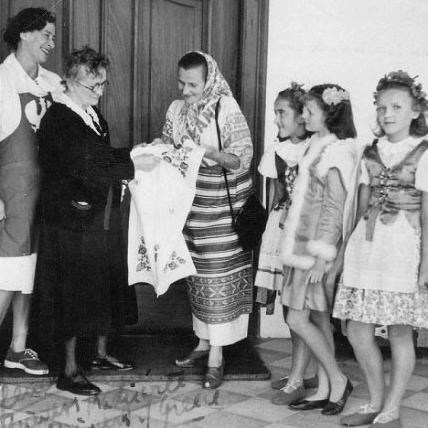News
How South Africa became a sanctuary for Polish child deportees
Many know the heroic work of Isaac Ochberg who brought 200 Jewish orphans from Eastern Europe to safety to South Africa in 1921. Yet, during the tumultuous decades that would follow, they weren’t the only large group of orphans to make a new home in South Africa.

MIRAH LANGER
In fact, in 1943, 500 Polish children were brought to start a free life in Oudtshoorn in the Western Cape. They had been part of the 1.7 million ordinary Polish citizens deported from their country to forced labour camps in Russian territories in 1939.
“These children came to form the core of the Polish community in South Africa,” said Stefan Szewczuk, the president of the Polish Association of Siberian Deportees in South Africa, who is also the descendent of two of the Polish deportees.
He explained that the children were brought to South Africa at the invitation of then Prime Minister Jan Smuts, who had earlier given permission for Ochberg’s rescue of his orphans. The children, many rescued from slave labour in Siberia, came to settle at a Polish children’s home which was established in a former military barracks.
The children lived at the home until 1947, when some were reunited with their extended families, and others sent to schools around the world.
Szewczuk said that among these Catholic orphans there was one Jewish girl. The Cape Town Jewish community took over her care.
Szewczuk was speaking last week at an event to honour this history at the Johannesburg Holocaust & Genocide Centre in Parktown. A documentary, A Forgotten Odyssey, was also screened. It detailed the experience of these citizens, wrested from their homes by the Russian invasion, just three weeks after the German occupation of their country.
“What is well known is the German atrocities in the war; what is less well known are the atrocities that the Russians committed,” said Szewczuk, outlining the aims of the SA Poland History Project, a cross-collaboration between Sol Plaatje University in Kimberley, Polish academic Dr Marta Nowakowska, and members of deportee associations. The history project aims to complete research, cultural activities, and other programmes that honour the legacy of this group.
“The history of the Russian deportation of innocent Polish citizens to Siberia is horrible and heartbreaking, but also interesting,” Polish Vice-Consul Klara Dąbrowska said at the event. Dąbrowska said that she used the word “interesting” in reference to Polish writer Józef Mackiewicz’s decree that “only the truth is interesting”.
She said it was key to “bring this painful history to light”.
“It’s important and needed nowadays, as so many have forgotten our suffering and have tried to build an alternative version of modern history, a version in which Poland is occupied and responsible for the horrible crimes that indeed took place on its land, but not under its jurisdiction,” she said.
“Such meetings don’t only keep the memories of our history fresh, they are an important contribution to Polish political history.”